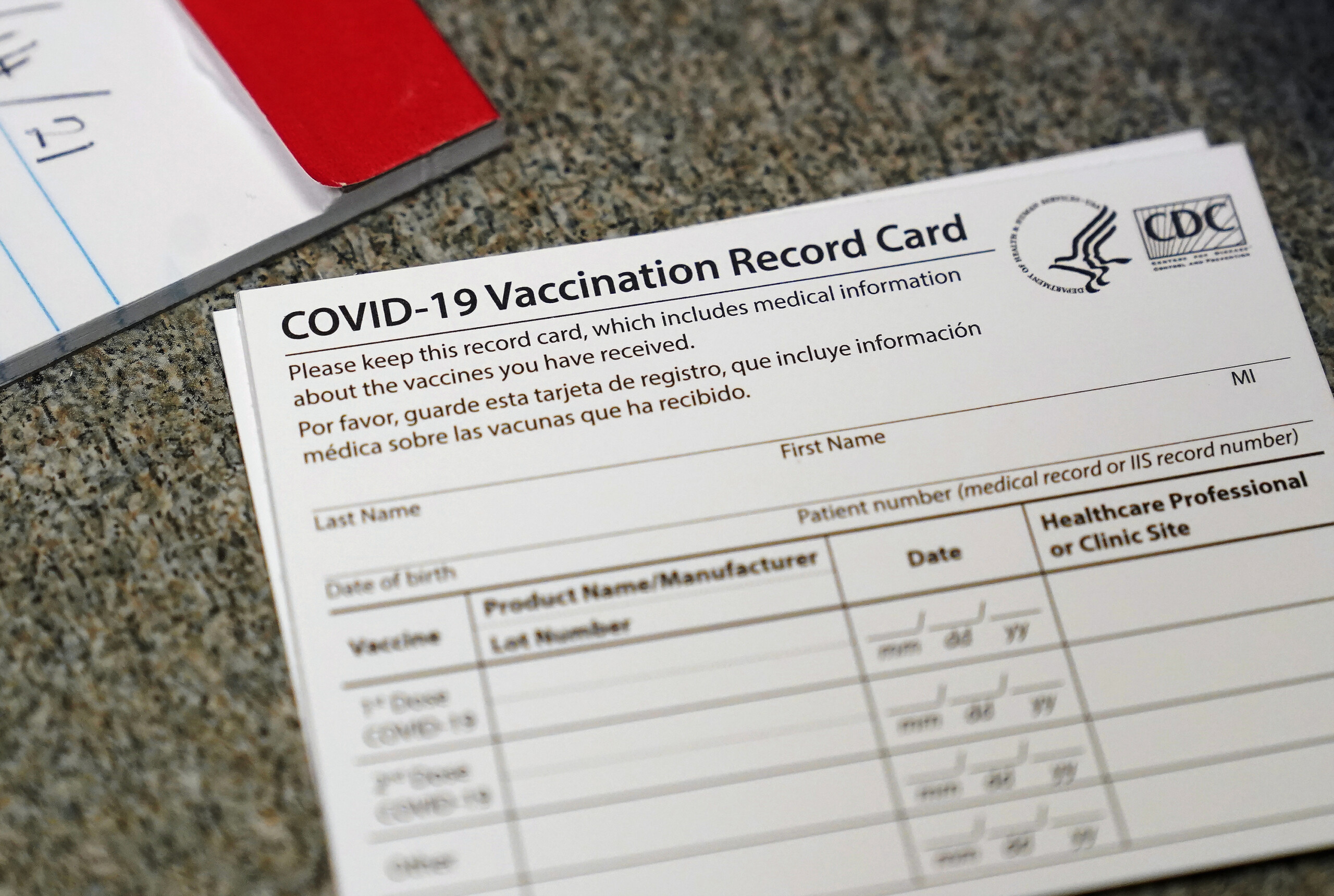Los Angeles OKs one of strictest US vaccination mandates
LOS ANGELES (AP) — Los Angeles leaders on Wednesday approved one of the nation’s strictest vaccine mandates — a sweeping measure that requires the shots for everyone entering bars, restaurants, nail salons, gyms or even a Lakers game.
The City Council voted 11-2 in favor of the ordinance that will require proof of full vaccination for patrons and workers starting Nov. 4.
Mayor Eric Garcetti signed it Wednesday afternoon.
“Vaccinating more Angelenos is our only way out of this pandemic, and we must do everything in our power to keep pushing those numbers up,” Garcetti said in a statement. “These new rules will encourage more people to get the shot, and make businesses safer for workers and customers — so that we can save more lives.
The move came after the City Council postponed a vote last week to deal with concerns ranging from who could be fined for violations to whether employees could end up in fist-fights when they have to serve as vaccine door monitors.
Some critics charge that a mandate would amount to segregation of those who cannot or refuse to be vaccinated. Others call it unenforceable.
Business trade groups have said the city mandate will sow confusion because Los Angeles County’s own vaccine rules — which apply both in Los Angeles and in dozens of surrounding communities — are less sweeping.
Cities, however, are allowed to pass rules more stringent than the county’s
City Council members who support the ordinance said it is aimed at reducing the risk of new COVID-19 surges. The nation’s second-most populous city faced a huge rise in infections and hospitalizations last winter and a smaller surge this summer linked to the spread of the highly contagious delta variant.
The ordinance would require people to be fully vaccinated to enter indoor public spaces including shopping malls, restaurants, bars, gyms, sports arenas, museums, spas, nail salons, indoor city facilities and other locations. Current vaccine eligibility includes people age 12 and up. Children under that age aren’t yet eligible for the vaccine.
Negative coronavirus tests within 72 hours of entry to those places would be required for people with religious or medical exemptions for vaccinations.
Customers without proof can still use outdoor facilities and can briefly enter a business to use a restroom or pick up a food order.
Council President Nury Martinez has said it is clear that the vaccines work but too many people remain unvaccinated despite widespread availability and door-to-door campaigns to vaccinate more people. She called the mandate “a necessary step towards returning to normalcy” and the lifting of mask requirements and other restrictions.
The ordinance came at a time when COVID-19 cases are plunging while political ambitions in Los Angeles are rising — two council members are running for mayor, as is the city attorney who wrote the proposal.
Councilman and mayoral candidate Joe Buscaino voted against the mandate. Last week during a council meeting he challenged the measure as being “clear as mud” regarding enforcement.
Buscaino also had noted that the conflict between the city’s measure and county’s vaccination mandate, which only covers patrons and workers at indoor bars, wineries, breweries, lounges and nightclubs.
He failed to win several amendments to the measure, including one that would make it a crime to harass employees who try to enforce it.
Councilman John Lee also opposed the measure, calling it “punitive toward businesses,” which are required to request customer proof of vaccination. Businesses can be given a warning for a first offense but fined up to $5,000 for repeated violations of the rules, starting on Nov. 29.
Of the county’s roughly 10 million residents, 78% have received at least one COVID-19 vaccine dose and 69% are fully vaccinated, according to public health officials.
The county on Wednesday reported 31 new deaths and nearly 1,500 new cases of COVID-19. Health officials said the county has reported 14 deaths a day, on average, even though deaths and hospitalization figures have plunged by some 50% since late August.
California health officials reported more than 5,000 new cases statewide, mostly among the unvaccinated. Nearly 85% of eligible Californians have received at least one vaccine dose.
A growing number of places across the U.S., including San Francisco and New York City, are requiring people to show proof of vaccination to enter various types of businesses and venues.
In San Francisco, proof of vaccination for staff and patrons has been required since Aug. 20 in indoor places where food or drink is consumed, where aerobic exercise occurs such as gyms, and where large groups gather such as entertainment venues.
Businesses have complied with the order and officials have not issued any notices of violation or levied any fines, according to the San Francisco Department of Public Health.
San Francisco also has a mandate requiring masks in all indoor businesses but public health officials in the city and in surrounding San Francisco Bay Area communities are expected to announce this week criteria that would allow officials to lift indoor mask mandates.
New York City this summer began requiring proof of vaccination to dine inside restaurants and bars, or to enter certain types of public places, including museums, theaters, gyms, indoor sports arenas and concert halls.
Compliance has been mixed and enforcement purposefully light, with the city favoring initial warnings for violators and fines for repeat offenders.
Associated Press writers Robert Jablon in Los Angeles and Olga R. Rodriguez in San Francisco contributed to this report.
